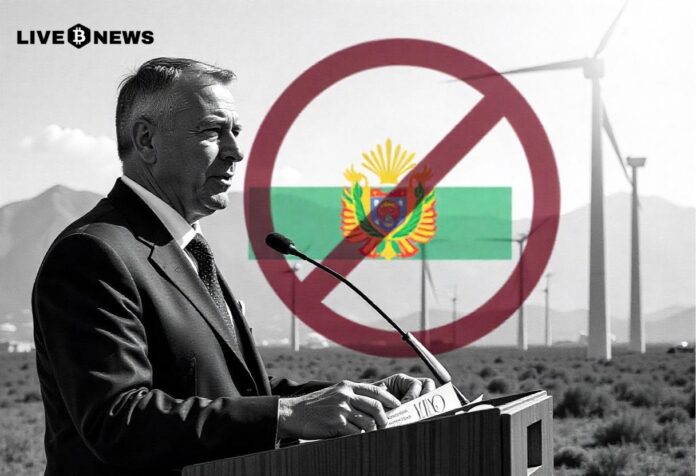- Bolivia’s presidential order 5399 bans crypto fuel payments.
- Goal is to maintain the boliviano currency and reduce volatility.
- Dollar shortages and fuel crisis prompted earlier crypto adoption.
The Bolivian government has forbidden the national oil corporation, Yacimientos Petrolíferos Fiscales Bolivianos (YPFB), from making energy purchases using cryptocurrency. On May 29, 2025, President Luis Arce signed Executive Order 5399 to tackle crypto energy payments and speculation in digital assets markets. The country has canceled its previous plan to bring in digital currencies as a solution for the dollar shortage crisis.
With the goal of bringing economic stability to Bolivia, the executive decree targets Binance-traded cryptocurrencies and stablecoins. U.S. dollars are scarce owing to decreased natural gas exports.YPFB had aimed to use digital currencies to cover their fuel imports, but the government has decided to use regular financial systems.
A decrease in the value of the parallel digital dollar was reported by Bolivia’s central bank after the economic measures and crypto ban were announced.A dearth of US money means the boliviano will continue to be under pressure from the dollar. Officials want to stop cryptocurrencies from affecting the stability of the national currency.
Economic Pressures Drive Policy Shift5
A major decline in natural gas exports has negatively affected the Bolivian economy. Relying on fuel imports has put pressure on the country’s money supply. In March 2025, YPFB revealed it would use cryptocurrencies to address missing dollars after being given the green light by the government. The system was developed to help with fuel subsidies during difficult economic times.
Even so, the government eventually changed its stance because it feared the markets might become unpredictable. Even though cryptocurrencies make transactions faster, their prices are unpredictable and the rules are not always clear. The reasons behind the executive order include worries that digital assets might disrupt Bolivia’s financial system.
The move is meant to improve the boliviano. It has used its limited dollars to help keep the currency’s rate fixed, according to the bank. The goal of the ban is to stop capital flight, as rich Bolivians are moving money out of the country because they are worried about the government’s new taxes.
The trend in the area is contradicted by Bolivia’s choice. Both Argentina and Venezuela are using digital assets for trading with other countries.In an effort to address similar financial concerns, Argentinean state-owned energy provider YPF experimented with cryptocurrency mining last year.The country’s decision to reverse its policy shows the need for careful use of new financial technologies.
Impact on the Global Energy Market
The ban prevents YPFB from following its plan for importing oil and gas. Because of a lack of fuel, the public has taken to the streets and only 35% to 50% of public transport is running. The crisis has made farmers worry about the future of summer harvests. Authorities expect the ban to help stabilize energy imports and make sure they are always available.
Steps taken by the government such as the crypto ban, have started to influence markets. As confidence in digital currencies as payment methods lessened, the parallel digital dollar’s value went down. The central bank reminded that only regulated ways of transferring money can be used for international business.
The nation’s move creates debate about how digital currencies can help in times of economic challenges. Though cryptocurrencies give options outside the traditional banking system, their great volatility and absence of rules can be a concern. Putting more attention on dollar-based exchanges should help stabilize the economy, but it might limit the development of new financial ideas.





